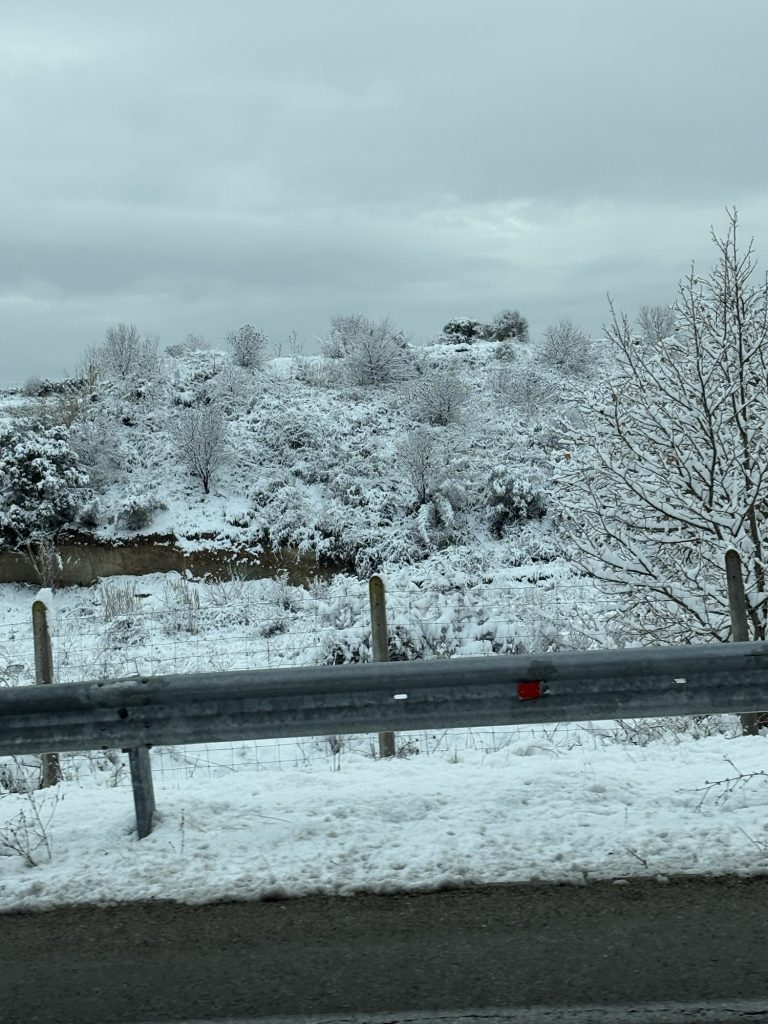I wish I could shake some of the grief that has gripped me over the past few months. I grieve the revelation of human truths I wish I did not know. And underneath the grief, I feel betrayed.
I feel betrayed by my elders, my country, its institutions and the power structures that have bounded my life and its path. It feels dramatic when I write it down but I know it to be true.
I have kept a lid on these simmering feelings because I am too afraid to unearth more truth that has the potential to rewrite my life and the internal (and external) perceptions of who I believe myself to be. And yet it is only change that has the power to overcome the entropy that destroys life. And that includes mine.
My feelings of betrayal seem too too ugly to look at and shake any sense of security or belonging that I might once have had. Which was in precious little supply already.
I don’t wish to be histrionic about it, but I am not the only American millennial who feels this way. I know many American Zoomers feel it more deeply than I do.
And there is plenty of evidence to support these feelings, which makes it all the worse. Feelings are not facts but there are facts beneath these emotions that are hard look at.
I don’t know why I cannot seem to unearth or articulate enough of my emotions to help me let go. I feel I have forgiven so much and it hasn’t been enough to change things. They say that betrayal creates a “double wound” as there is the act itself, and then the shattering of our belief in the fidelity and values that had scaffolded our lives.
I don’t want to look at the grief and betrayal straight on for reasons I hope I can slowly reveal to myself and others. Whatever protection it offers my ego and inner child must have some value but keeping things hidden is not helping me
I going to try to articulate these feelings, even if I am afraid of putting such enormous vulnerability out for scrutiny. I’ve done it before and it has only ever helped so I must find some courage to go further.
It’s not that I think anyone reads, or even notices what I say here, but rather once something is written into our public networks it stays. There is a reason “the word” has had such resonance for creation in faith. By writing it into a record I will create something that is real and will have consequences.
The relief I felt at the passing of my father at the end of last summer embarrassed me at first. I wanted to feel sadness, loss, love, and absence but all I could see was relief that he was gone.
I wished for more change and endings before the hungers of the past’s needs would eat more of my present. And I knew it would not come unless I made it so. Saturn devours his son. The son must slay his father.
I loved my father so deeply that I shaped my whole early life around impressing him in the hopes that he would find reason to be more present.
No achievement or milestone was ever enough to change his orientation and availability to me. Still I forgave him. He gave me so much. At the end I do not know (and must contend with not ever knowing) if he forgave himself.
This personal tragedy has anchored my feelings on the generation above mine and how they have conducted themselves in the management of America and all of its institutions.
The trust and fidelity has been broken. From education and health to politics, cultural and monetary systems the harms have compounded and the healing is slow. Family forgive but society needs scapegoats. And that makes me fearful.
The only systems that I feel has not actively betrayed me remain market capitalism and the edifice of our informational technologies. Ironically there are huge swathes of my generation who feel those are the systems that have harmed them the most.
I do not believe that free association and information are harmful. Indeed I see them as entirely beneficial even when there are obviously individual harms that the abstractions do not reveal so easily.
Some believe humans were simply not meant to live at a scale that showed us a world beyond our roots. How can we remain true to any values when all ruptured and greed, disgust, treachery and disloyalty is laid so bare and in such a brazen manner? To err is human and seeing our sins at such scale is a grievous harm we must overcome.
I myself am unsure if paradise lost to wider wisdom is only harm. We eat the fruit of the tree of the knowledge of good and evil and now see sin. But we also reveal the sustenance of divine love and redemption. Malus is not the same as malum.
Perhaps it is precisely because it is the wider world that has nurtured me even as family, elders, and institutions have ravaged the basics of life that I can see this horrifying but beautiful whole.
For millennia we have grounded the rituals and meaning of human life at a smaller scale with fewer hidden truths. Now it is laid bare to us all.
I am a citizen of the world with wealth but not health. I have built a beautiful family and marriage but likely will have no children. I have an incredible community of friends but we are scattered to the winds.
The personal middle ground of my life doesn’t exist because of the hunger of a generation and a nation that cared more about themselves and their reach and power than the future that would obviously arrive.
As younger generations wait to take the reins of their future, it threatens to never arrive. The grip of the past refuses to let go. And I wish to pry open that grip so we may try and do better.
They did the best that they could. And it hurts so much that it was not enough. The fear remains our efforts won’t be either.







